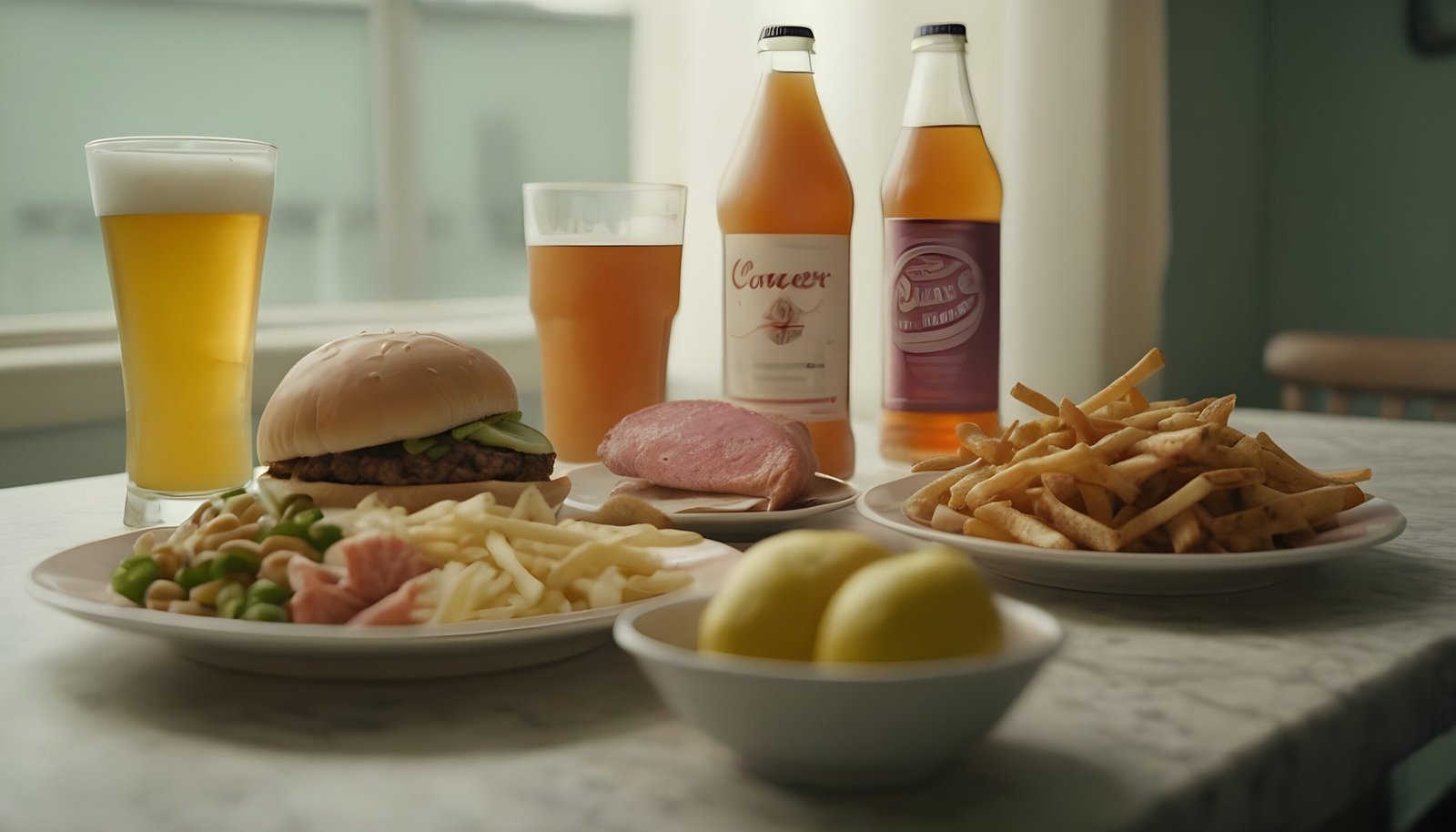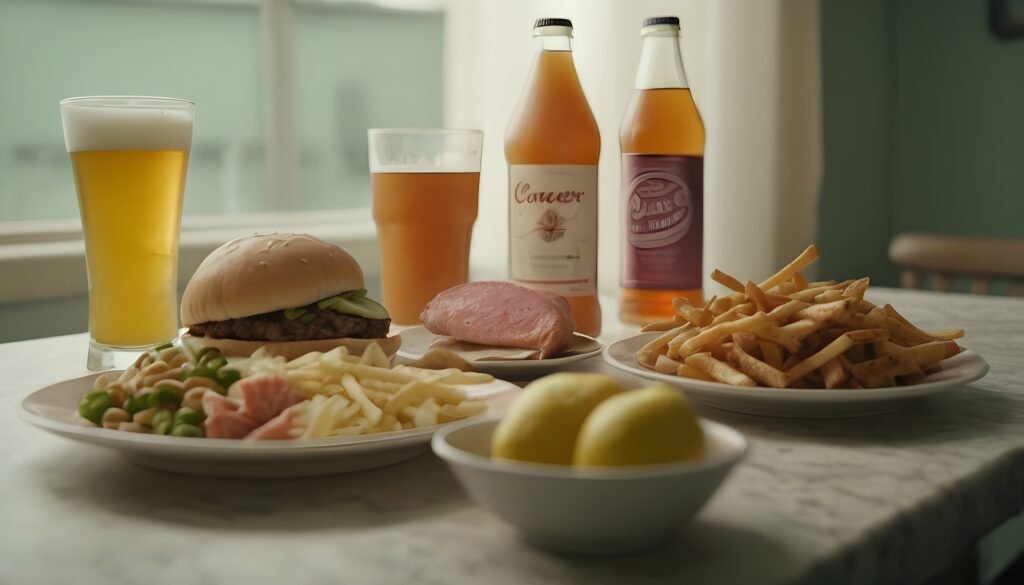Five foods and beverages that could be carcinogenic

It might be frightening to learn about cancer risk factors, particularly since they can be as ubiquitous as food.
This information may also prompt several inquiries: Why do some foods raise the risk of cancer? Should one fully avoid these foods? What nutritious alternatives exist for these foods?
Alyssa Tatum, a clinical dietitian, lists the five food groups that have been connected to cancer along with advice on how to move forward with your relationship with these foods.

crimson meats
According to Tatum, red meat—such as beef, hog, venison, and lamb—has been connected to colorectal cancer.
However, this does not imply that you have to give up your favorites, like hamburgers, forever. Instead, Tatum advises guests to eat red meat less frequently and in smaller volumes.
“We’re not saying ‘Don’t eat it,’ but we are recommending that you try to limit your intake of red meat and choose smaller portions,” adds Tatum.
Dietitians at MD Anderson advise a mostly plant-based diet. Two thirds of your diet should consist of vegetables, whole grains, legumes, fruits, nuts, and seeds; the remaining third should consist of dairy products and lean meats.
Also, dietitians advise consuming no more than 18 ounces of red meat per week. I’m not sure how that appears. Visualize eighteen ounces of beef as six decks of cards or two softballs, if that helps.
Tatum also mentions that cooking red meat to a higher temperature can raise the risk of cancer. For instance, foods cooked at a lower temperature through techniques like baking or sous vide contain less potential carcinogens than do chargrilled meats like steaks and burgers.
Tatum claims that “they can produce carcinogens that are linked to cancer when they are being cooked at such a high temperature.”
She advises cutting the fat, marinating the meat before cooking, or selecting a red meat alternative with less marbling.
meats that have been processed
Processed meat is another type of meat that has an increased risk of cancer.
Any meat that has been preserved or had its flavor or form altered is referred to as processed meat. This comprises sausage, hotdogs, ham, bacon, and most of the meat selections that are kept behind the deli counter.
According to Tatum, the use of nitrates and nitrites in the preservation of these choices may raise the danger of stomach and colorectal malignancies.
Tatum advises starting modest when making dietary adjustments because they can feel overwhelming. This could mean looking for deli meats that are reduced in fat and sodium, or that are devoid of nitrite and nitrate.
“I advise checking labels to determine if there are any healthy substitutes for that meal.
booze
Numerous articles discuss the advantages and disadvantages of alcohol consumption in terms of health. However, according to experts in cancer, drinking alcohol has been associated with a higher chance of developing a number of illnesses, such as breast, colorectal, esophageal, liver, and stomach cancers.
According to Tatum, “alcohol damages tissues over time, which can result in changes in the DNA of the cell and an increased risk for cancer.”
Tatum points out that while more recent guidelines urge abstaining from alcohol completely, not everyone may find it appealing. If you choose to consume alcohol, try to limit your intake to no more than one drink for women and two for men every day.
highly processed foods and beverages
Ultra-processed foods and beverages include higher quantities of sugar and sodium, which can cause weight gain and obesity and are indirectly connected to an increased risk of cancer.
Consuming these highly processed, high-calorie, low-nutrient foods can raise your risk of cancer by contributing to weight gain and obesity. According to Tatum, obesity raises your risk of developing cancer.
She suggests focusing on moderation and choosing smaller portion sizes to cut down on the quantity of ultra-processed food in your diet.
I can’t promise that I’ll never eat ultra-processed food again. For other people, that can be difficult or unrealistic, she explains.
Sugar-filled foods and beverages
Cancer is indirectly associated with products that contain artificial sweeteners or added sugar.
These sweetened options, like ultra-processed ones, can cause weight gain and obesity, which increases the risk of cancer.
Tatum notes that there has been conflicting research on the direct cancer risk associated with artificial sweeteners.
She suggests using artificial sweeteners in moderation, just as she suggests using sugar.



Leave a Comment